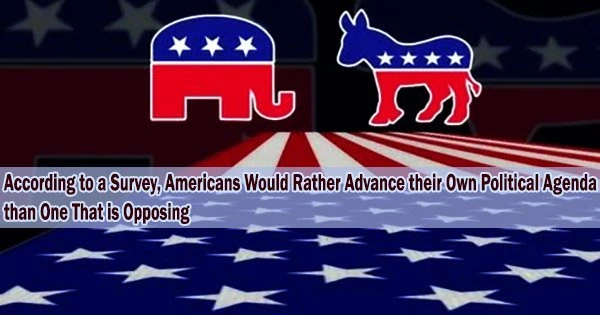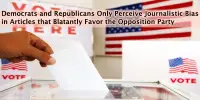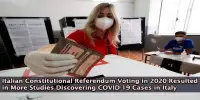According to a recent University of California San Diego Rady School of Management study, both Democrats and Republicans would prefer to cut funds from their own political party than provide it to the opposition.
People would rather hurt the cause they believe in than assist one they detest, according to research that also examines their views on two other divisive issues, gun rights and reproductive rights.
This expensive preference has never before been supported by research, according to the study that was published in Proceedings of the National Academy of Sciences.
“We sought out to understand the principles guiding decisions in group conflicts because it is essential to recognizing the psychological barriers to compromise and cooperation,” write the study’s joint first authors, Ariel Fridman, a Ph.D. candidate in behavioral marketing at the Rady School and Rachel Gershon, assistant professor of marketing at the Rady School.
3,876 people were interviewed for the study between the winter of 2019 and the summer of 2022. In a study, participants were asked whether they would like to add $1 to a gift going to the other political party or deduct $1 from a donation going to their own party after researchers determined whether they were Republicans or Democrats. In complementary experiments, the funds varied from $10 to $100.
Despite the fact that doing so would have affected their own political party, more than 70% of participants, regardless of their political affiliation, chose not to make a donation to the oppositional political party. When participants were invited to donate money to pro-choice, pro-life, pro-gun-control, or anti-gun-control causes, the same thing happened.
Our findings offer a practical approach that has the potential to increase cooperation: providing information about norms between like-minded individuals may reduce people’s identity concerns, thereby allowing for behaviors that support the opposing groups when it is advantageous for the collective good.
The Authors
“Remarkably, we saw these results even though both conservative and liberal respondents noted they thought their side was more effective with funding,” the authors write. “In fact, our findings reveal that individuals are so averse to providing any support to the opposing group that they, on average, accepted triple the amount of financial loss to their group in order to avoid any gains for the other side.”
The findings were confirmed in six different trials, some of which included genuine donations that the researchers actually distributed according to the preferences of the participants.
Researchers discovered that even those who claimed they did not have firmly held opinions about their political party, or on subjects like gun rights and reproductive rights, nonetheless preferred to harm their own group than helping their political rivals.
In terms of age, ethnicity, and gender, the participants, who made up the majority, were largely typical of the American population. In one study, participants in the United Kingdom were asked if they supported the Conservative or Labor party, and the findings showed a similar preference for hurting one’s own side over supporting the opposition.
“We were curious to know whether this phenomenon is unique to the U.S. or exists in other countries,” said Fridman. “In future research, we are interested in exploring whether the pattern of preferences we found extends to more cultures and political environments.”
The authors propose that identity concerns drive this behavior.
“We find that participants do not make decisions in this context based on the expected real-world impact of their choice,” said Gershon. “Rather, they are influenced by the desire to protect their identity. They believe that supporting the opposing group will have a greater negative influence on their identity and therefore choose to harm their own group instead.”
When influential political figures cross the aisle, it could reduce divisiveness
The authors designed an experiment where they informed research participants that most members of their group did compromise by giving their opponents a modest bit of support, as opposed to hurting their own group, in order to counteract this impact and encourage collaboration.
People’s conduct changes when group “norms” are communicated. When people were informed that people of their political affiliation were willing to support the opposing side, they too were more likely to do the same.
The authors conclude, “Our findings offer a practical approach that has the potential to increase cooperation: providing information about norms between like-minded individuals may reduce people’s identity concerns, thereby allowing for behaviors that support the opposing groups when it is advantageous for the collective good.”
They note that identity may be playing an outsized role in our political decision-making. “Our findings have real implications for decision-making in polarized contexts, including high stakes political choices,” they write.
“For example, a congressperson wishing to cross the aisle to support important legislation may be hindered by the assumption that it would signal disloyalty to their party. In a period of high divisiveness, this work sheds light on the role of identity in polarized contexts and the psychological obstacles that may impede progress.”
















